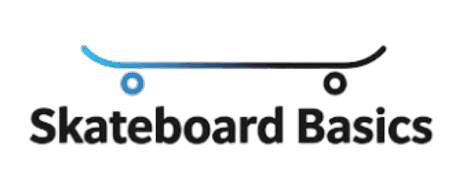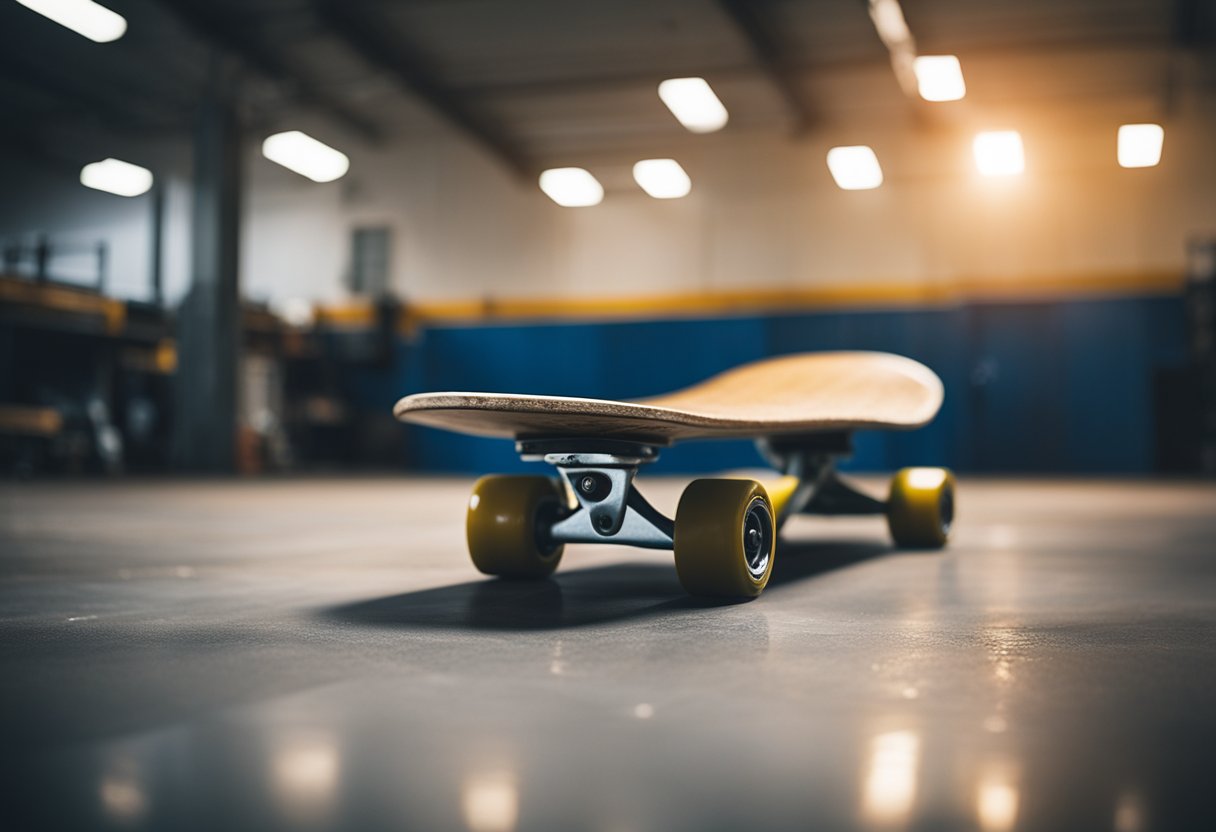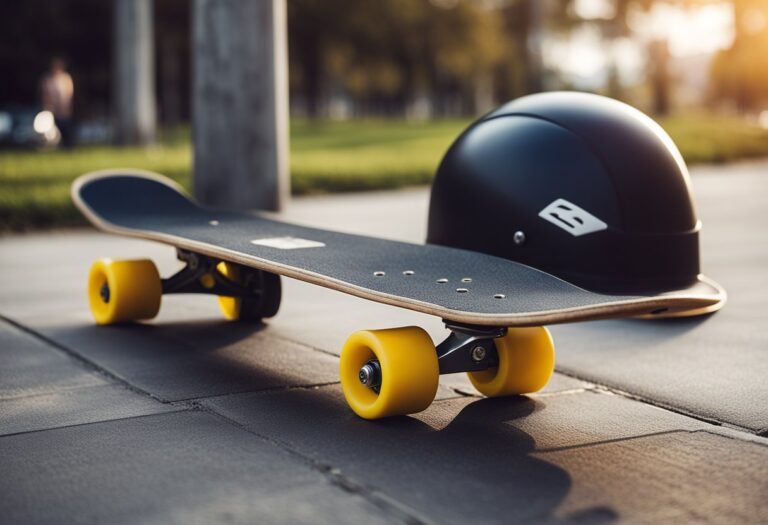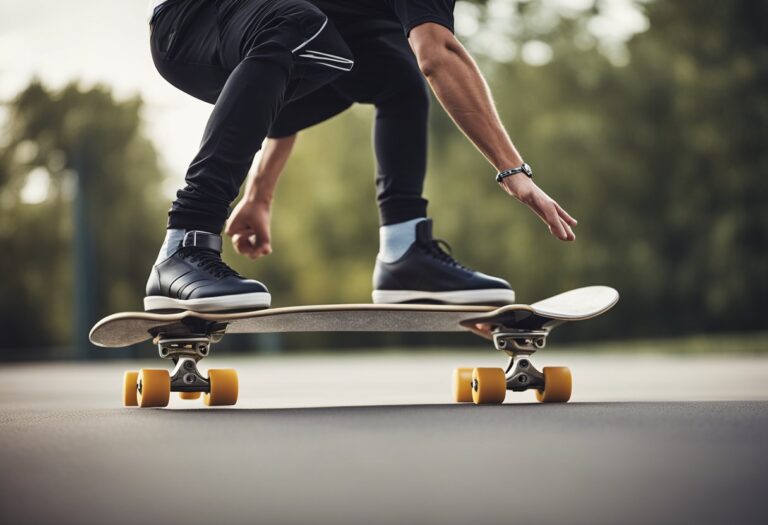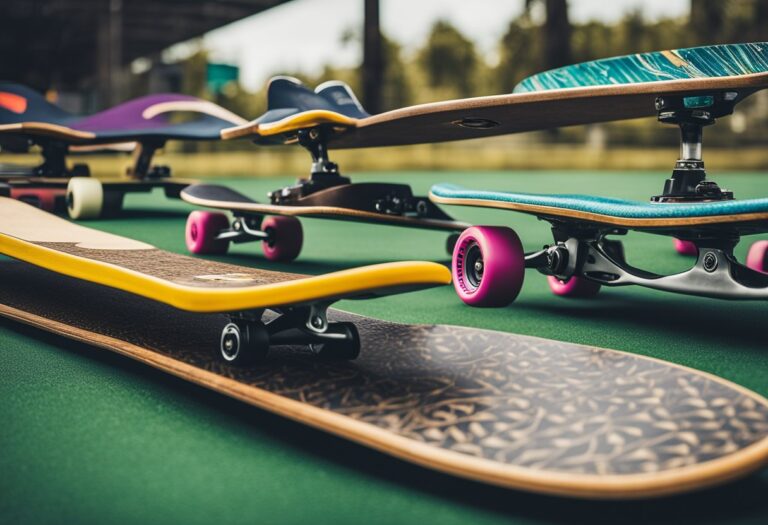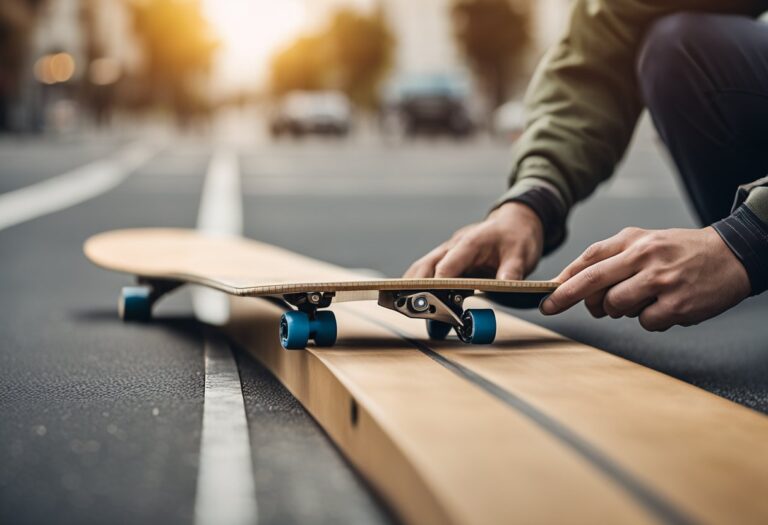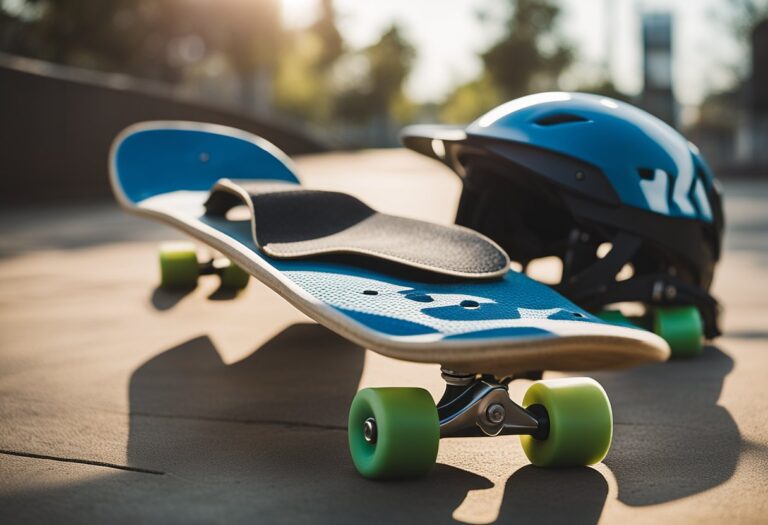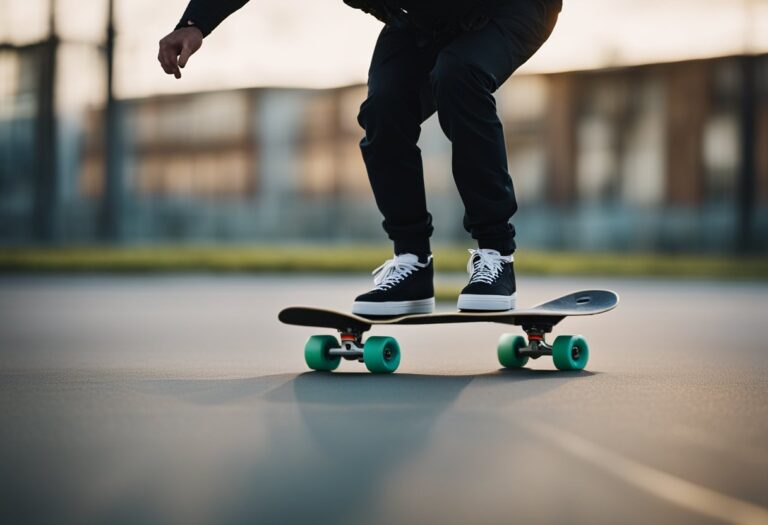What Age is Too Late to Learn Skateboarding: Expert Opinion
Skateboarding is a sport that is enjoyed by people of all ages. While many people assume that skateboarding is only for the young, the truth is that anyone can learn to skateboard at any age. However, many people wonder what age is too late to learn skateboarding. In this article, we will explore this question and provide some insights into the physical and mental aspects of learning to skateboard at any age.

First, it’s important to debunk the age-related myths surrounding skateboarding. Many people assume that skateboarding is only for kids and teenagers, but the truth is that people of all ages can enjoy this sport. While it’s true that younger people may have an advantage when it comes to learning new tricks and techniques, older individuals can still learn and improve their skills with practice and dedication.
When it comes to learning to skateboard at any age, there are some physical considerations to keep in mind. Skateboarding can be a physically demanding sport, and it’s important to be aware of your body’s limitations. However, with the right approach and mindset, anyone can learn to skateboard and enjoy the many benefits that come with it.
Key Takeaways
- Skateboarding is a sport that can be enjoyed by people of all ages.
- There are no age limits when it comes to learning to skateboard.
- With practice and dedication, anyone can improve their skills and enjoy the many benefits of skateboarding.
Debunking Age-Related Skateboarding Myths

Skateboarding is often seen as a sport for the young, and many people believe that it’s too late to start learning once you reach a certain age. However, there are several age-related skateboarding myths that need to be debunked.
Myth 1: Skateboarding is only for kids and teenagers
Skateboarding is often associated with young people, but it’s a sport that can be enjoyed by people of all ages. In fact, many professional skateboarders continue to skate well into their 30s, 40s, and even 50s.
Myth 2: You need to start skateboarding at a young age to become good at it
While it’s true that starting at a young age can give you an advantage in terms of developing muscle memory and coordination, it’s never too late to start learning. With practice and dedication, anyone can become a skilled skateboarder, regardless of their age.
Myth 3: Skateboarding is too dangerous for older adults
Skateboarding can be a risky sport, but that doesn’t mean it’s only for the young and reckless. Older adults can take steps to reduce their risk of injury, such as wearing protective gear and starting with basic tricks before moving on to more advanced maneuvers.
In conclusion, age should not be a barrier to learning and enjoying skateboarding. With the right mindset and approach, anyone can become a skilled skateboarder, regardless of their age.
Physical Considerations for Learning Skateboarding at Any Age

Skateboarding requires a combination of physical skills, including balance, coordination, flexibility, strength, endurance, and stamina. While these skills can be developed at any age, there are some physical considerations to keep in mind when learning to skateboard.
Balance and Coordination
Balance and coordination are essential skills for skateboarding. Skateboarders need to be able to maintain their balance while moving at high speeds and performing tricks. Learning to balance on a skateboard can be challenging, especially for beginners. However, with practice, anyone can improve their balance and coordination.
Some exercises that can help improve balance and coordination include:
- Standing on one foot
- Walking heel to toe
- Balancing on a balance board or wobble board
Flexibility and Strength
Flexibility and strength are also important for skateboarding. Skateboarders need to be able to move their bodies in different ways and hold positions for extended periods. They also need to be able to absorb the impact of jumps and tricks.
Some exercises that can help improve flexibility and strength include:
- Stretching before and after skateboarding
- Doing yoga or Pilates
- Doing strength training exercises such as squats, lunges, and push-ups
Endurance and Stamina
Finally, endurance and stamina are essential for skateboarding. Skateboarders need to be able to skate for extended periods without getting tired. They also need to be able to perform multiple tricks in a row without losing energy.
Some exercises that can help improve endurance and stamina include:
- Doing cardio exercises such as running, cycling, or swimming
- Skating for extended periods without taking breaks
- Doing interval training, which involves alternating between high-intensity and low-intensity exercises
Overall, while there are some physical considerations to keep in mind when learning to skateboard, anyone can learn to skateboard at any age with practice and dedication.
Mental Aspects of Learning to Skateboard

Learning Mindset
When it comes to learning any new skill, including skateboarding, having the right mindset is crucial. A positive attitude and a willingness to learn are essential for success. Those who approach learning with an open mind and a willingness to try new things are more likely to progress quickly.
Fear and Overcoming It
Fear is a natural part of learning to skateboard. It is important to acknowledge and respect your fear, but also to learn how to overcome it. One way to do this is to break down the skill into smaller, more manageable steps. By practicing each step individually and building up to the full skill, you can gradually overcome your fear.
Patience and Persistence
Learning to skateboard takes time and effort. Patience and persistence are key to making progress. It is important to remember that everyone learns at their own pace, and progress may not always be linear. By staying committed to the process and continuing to practice, even when progress seems slow, you can eventually achieve your goals.
In summary, the mental aspects of learning to skateboard are just as important as the physical aspects. Having a positive mindset, learning to overcome fear, and maintaining patience and persistence are all essential for success. With dedication and practice, anyone can learn to skateboard, regardless of age.
Equipment and Safety

Choosing the Right Skateboard
Skateboarding is a fun and challenging sport that requires the right equipment to get started. When choosing a skateboard, it is important to consider the size and shape of the board, as well as the type of wheels and trucks. Beginners should look for a wider and longer board with softer wheels, as this will provide more stability and control. It is also important to choose a board that is appropriate for the rider’s height and weight.
Protective Gear Essentials
Skateboarding can be dangerous, so it is important to wear the right protective gear to prevent injuries. The most essential protective gear for skateboarding includes a helmet, knee pads, elbow pads, and wrist guards. It is important to choose gear that fits properly and is comfortable to wear. Riders should also make sure that their gear is in good condition and replace any worn or damaged gear.
Skatepark Etiquette
When skateboarding at a skatepark, it is important to follow proper etiquette to ensure a safe and enjoyable experience for everyone. Riders should always wait their turn and avoid cutting in front of others. They should also be aware of their surroundings and avoid collisions with other riders. It is also important to keep the skatepark clean and free of litter. Finally, riders should respect the rules of the skatepark and avoid engaging in dangerous or disruptive behavior.
Getting Started with Skateboarding

Skateboarding is a fun and exciting sport that can be enjoyed at any age. Whether you are a beginner or an experienced skateboarder, it is important to start with the basics and work your way up.
Basic Techniques
Before you start skateboarding, you need to learn the basic techniques. These include how to balance on the board, how to push off, and how to turn. It is important to practice these techniques until you feel comfortable and confident on the board.
Finding Instruction and Community
Skateboarding can be a challenging sport to learn on your own. It is important to find instruction and community to help you progress. This can include taking lessons from a skateboarding instructor, joining a skateboarding club, or finding friends who also enjoy skateboarding.
Practice and Progression
As with any sport, practice is key to progress in skateboarding. It is important to set goals for yourself and practice regularly to achieve them. This can include learning new tricks, improving your balance, or increasing your speed.
Remember, it is never too late to start skateboarding. With dedication and practice, anyone can become a skilled skateboarder.
Inspirational Stories of Late Learners

Learning skateboarding at an older age may seem daunting, but it’s never too late to start. Here are some inspiring stories of people who picked up skateboarding later in life and became proficient at it.
1. Neal Unger
Neal Unger started skateboarding at the age of 60, after a lifetime of cycling and skiing. He was inspired by his grandson and decided to give skateboarding a try. Despite being a complete beginner, he quickly fell in love with the sport and started practicing every day. Now, at the age of 70, he’s a skilled skateboarder and has even won several competitions.
2. Cindy Whitehead
Cindy Whitehead is a former professional skateboarder who quit the sport in her 20s. However, she picked up skateboarding again in her 40s and started a movement called “Girl is NOT a 4 Letter Word” to encourage more girls and women to take up skateboarding. She’s now a successful entrepreneur and advocate for women in skateboarding.
3. Tony Hawk
Tony Hawk is a household name in skateboarding and started the sport at the age of 9. However, he’s still pushing his limits and learning new tricks even in his 50s. He’s a testament to the fact that age is just a number and you’re never too old to learn something new.
These stories show that it’s never too late to start skateboarding and become proficient at it. With dedication and practice, anyone can become a skilled skateboarder, regardless of age.
Long-Term Benefits of Skateboarding

Skateboarding is not just a fun activity, but it also has long-term benefits for individuals of all ages. Here are some of the benefits of skateboarding that can positively impact a person’s life:
Improved Physical Health
Skateboarding is a great way to improve physical health. It is a full-body workout that helps build strength, endurance, and flexibility. Skateboarding can also improve balance and coordination, which are essential skills for many sports and activities.
Mental Health Benefits
Skateboarding can also have positive effects on a person’s mental health. It can help reduce stress and anxiety, and it can provide a sense of accomplishment and confidence. Skateboarding can also be a social activity, which can help combat feelings of loneliness and isolation.
Lifelong Learning
Skateboarding is a sport that can be enjoyed at any age, and it can provide a lifetime of learning opportunities. As individuals progress in their skateboarding skills, they can continue to challenge themselves with new tricks and techniques. Skateboarding can also provide opportunities for creativity and self-expression.
Overall, skateboarding has numerous long-term benefits that can positively impact a person’s physical and mental health, as well as provide opportunities for lifelong learning and personal growth.
Frequently Asked Questions

At what age does learning to skateboard become more challenging?
Learning to skateboard can be challenging at any age, but it may become more difficult as a person gets older. This is because the body’s flexibility, balance, and coordination tend to decrease with age. However, with practice and dedication, anyone can learn to skateboard regardless of their age.
Is there a cut-off age for starting to skateboard?
There is no specific cut-off age for starting to skateboard. As long as a person is physically able and willing to put in the time and effort to learn, they can start at any age. However, it is important to consult with a healthcare provider before starting any new physical activity, especially if there are any pre-existing medical conditions.
What should adults consider when learning to skateboard later in life?
Adults who are learning to skateboard later in life should take things slow and gradually build up their skills. It is important to wear proper protective gear, such as a helmet, knee pads, and elbow pads, to prevent injuries. Adults should also be aware of their physical limitations and avoid pushing themselves too hard.
How does starting skateboarding in your 30s differ from starting younger?
Starting skateboarding in your 30s may be more challenging than starting at a younger age because the body’s natural flexibility and coordination tend to decrease with age. However, adults have the advantage of life experience and can approach learning with a more focused and disciplined mindset.
Are there success stories of people who began skateboarding past their 20s?
Yes, there are many success stories of people who began skateboarding past their 20s. With dedication and practice, anyone can learn to skateboard at any age. Some well-known examples include Neal Unger, who started skateboarding in his 60s, and Cindy Whitehead, who began skateboarding in her 40s.
What are the limitations to learning skateboarding as an older adult?
The main limitation to learning skateboarding as an older adult is the body’s natural decline in flexibility, balance, and coordination. However, this can be overcome with practice and dedication. It is also important for older adults to be aware of their physical limitations and avoid pushing themselves too hard to prevent injuries.
